Son Of A Butcher
Peter Lehmann
The Pastor's Son Shiraz 2015

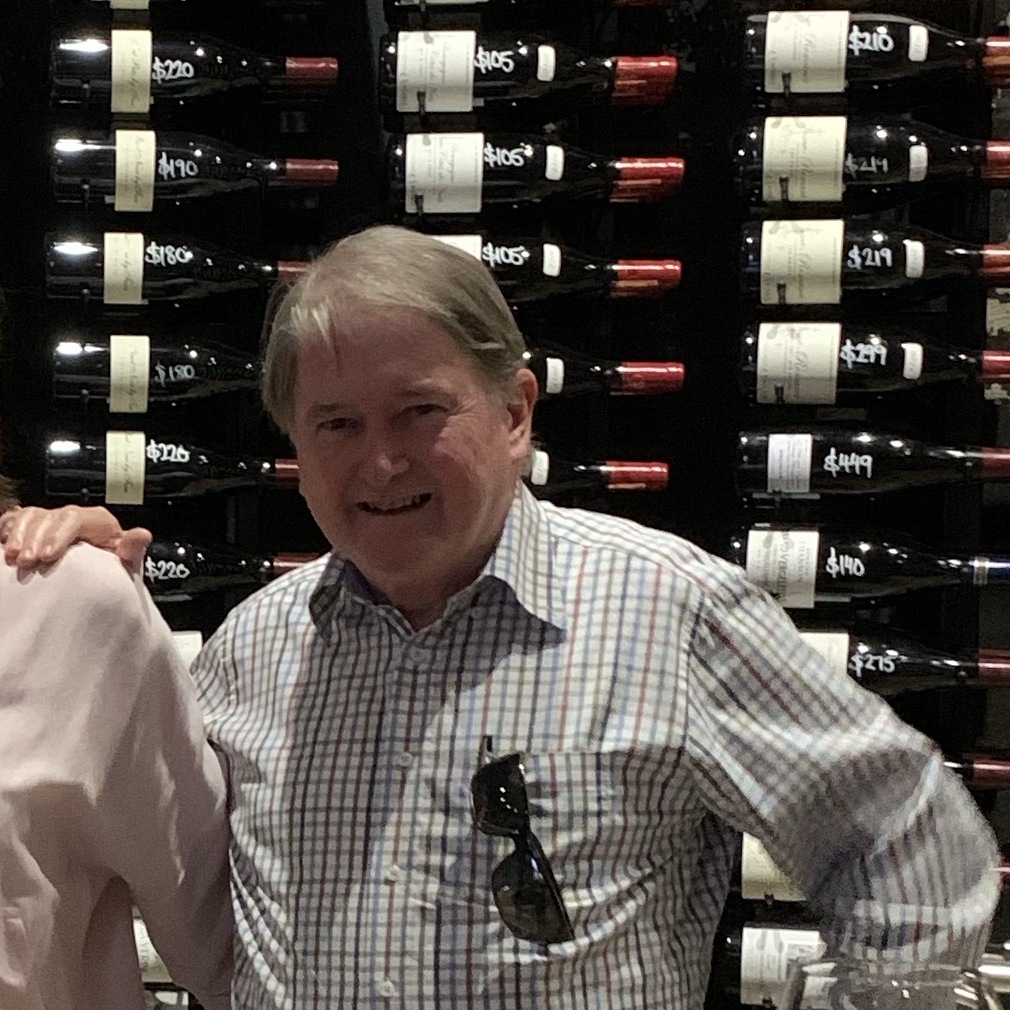
Domaine Denis Mortet
Mes Cinq Terroirs Gevrey-Chambertin Pinot Noir 2014
On the nose, sweet, floral, dark cherries, touch of plum, black raspberries, raspberries, red licorice/cola, lovely funk, canopy leaf, perfumed red florals and fine, sexy, chalky minerality. The mouthfeel is beautifully crisp...medium body. The fruits are bright and tantalizing. Strawberries, dark cherries with Rainer cherries blended in, cranberries, pomegranate, plum, black raspberry, raspberries, soft, super fine powdery chalkiness, crushed dry rock powder, light beautiful spice, red florals with a touch of violets, perfect acidity and a well balanced, polished finish. Photos of, the property entrance, Chevrey Chambertin vineyard and Arnaud. History and producer notes...Domaine Denis Mortet was founded by Denis Mortet in the early 1990s. Strangely, he took his own life at the age of 51 in 2006. He started with modest holdings to become a very well respected Winemaker in Burgundy with his 1993 wines. His son Arnaud has now taken over. The estate vines are relatively young at 25 years. The Domaine's 10 hectares encompass 14 different Appellations, including two Grands Crus in Clos-de-Vougeot and Chambertin. All their wines including their village wines see new oak. This wine is a blend of all their Chambertin holdings and fermented in around 30% new oak. — 8 years ago

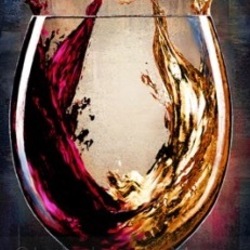
Caymus Vineyards
Special Selection Napa Valley Cabernet Sauvignon
On the nose, warm, leaner, stewed fruits of; blackberries, dark cherries, spiced plum, poached strawberries, black raspberries, cherries, black licorice anise, spice-box, cigar, vanilla, cinnamon, clove, nutmeg, rich dark loamy soils & fresh/dry dark florals. The palate is lean, well resolved tannins, heated, darker spice-box, blackberries, dark cherries, spiced plum, poached strawberries, black raspberries, cherries, black licorice anise, cola, spice-box, cigar, vanilla, cinnamon, clove, nutmeg, caramel, dark chocolate, mocha, rich dark loamy soils & fresh/dry dark florals. Acidity pours over the palate. The finish is smooth, lean, pure elegant fruit with spice. It's lasts over a minute. The 94 is just starting to trend down but still the best vintage of Caymus Special Select I can remember. So if you own, time to enjoy it over the next two years. Enjoyed this at a private dinner/tasting at the Ritz Carlton Half Moon Bay a number of years ago with Chuck and his son Joseph who makes the Bella Clos. Brings me right back to the fire pit closing out the night with this wine & the great group of clients we entertained. First time tasting this vintage with my wife Sofia. Photos of; the Special Select vineyard, estate grounds, beautiful Caymus fruit and the legendary Chuck Wagner-Owner & Winemaker. Another recent pristine bottle from my friend Alex @ "No Limit Wines." — 9 years ago

Château Lynch-Bages
Grand Cru Classé Pauillac Cabernet Sauvignon Blend 1990
So in the battle is who is the best child... we paired the 88 vs the 90 (son vs daughter birth year). Both were outstanding but the 88 had more age in the color and softness on the nose and palate. Family currently arguing over density but for me the 90 was more dense. Lots of mixed fruit leather smoke and terroir which is very French but great for those who enjoy it. So in the name of family peace we rate both as outstanding but the 90 (the daughter) is a bit bigger. Cheers — 9 years ago
Philip Murphy Estate
Mornington Peninsula Pinot Noir 2010
Pale Ruby. Amazing intensity on nose and palate for such a pale coloured wine. Sweet AND Savoury with mushroom and Beetroot notes. Loved this wine - delicious and different with a nod to Burgundy. Philip Murphy is the son of Dan Murphy whose name is famous for being the largest wine retailer in Australia. The liquor chain is owned by Woolworths, Dan died in 2001 and Philip went off with his inheritance after many court battles never having cordial relationships with Dan who was 83 when he died. — 9 years ago
Son of a Son
Central Coast Barbera Blend 2013
Very drinkable and fairly light. — 10 years ago
Hubert Lamy
En Remilly Saint-Aubin 1er Cru Chardonnay 2009
From an A+ vineyard, on the St. Aubin side of the Montrachet hill. Next to the Chevalier Montrachet parcel, but with a different exposure (south-west instead of south-east). Energetic Burgundy from a rising star domaine (especially since son Olivier took over in 1995). — 10 years ago
E. Malamatinas & Son
Retsina Malamatina
Disclaimer: ONE glass... OK. After that, you're on your own.
Who knew they made "The Crystal of Retsinas" in industrial sized bottles! You can enjoy a beach side cocktail mixed with Sprite and a piece of ice and strip your floors with the rest. GOOD STUFF. — 11 years ago
Kuleto Estate
Native Son Napa Valley Red Blend 2009
Made by winemaker of the decade. Soft. Wonderful nose. Oaky smell. Silky finish with a beautiful oak/red fruit taste — 12 years ago
Y Rousseau
Son of a Butcher Tannat Blend
Tims wine. Very smooth and rich. Great wine. — 6 years ago
Shafer Vineyards
One Point Five Stags Leap District Cabernet Sauvignon 2015
The small winery is managed by father/son team John & Doug Shafer. A blend of 90% Cab Sauv, 7% Merlot & 3% Malbec, aged, 20 months, 100% new French oak. Beautiful fruit & floral aromas with hints of savory spice. On the palate cherry & raspberry flavors with a tight oak structure adding pepper, licorice & dusty cacao. Firm tight tannins, needs decanting now, lingering ending with fruit & slight mineral edge. Good now but 5 years of cellar rest with make wine pop! Had this with a Holiday Filet Mignon. Nice! — 7 years ago
Saint-Chamant
Brut Champagne Cuvée de Chardonnay 2005
Pale golden yellow. Fine mousse with persistent beading. On the nose, golden delicious apple, lemon curd, and pie crust with a hint of nuttiness. Creamy on the palate with baked apple, chalky minerality, and bright acidity . Christian and son Stephane Coquillette, as seen on the documentary “A Year in Champagne”, made this wine from 100% Chardonnay from the family’s Grand Cru estate vineyard in Chouilly in the Côte des Blanc. This is a lovely, mature vintage grower Champagne. 12% alcohol. $75. — 8 years ago
Collard-Picard
Cuvée Prestige Brut Champagne Blend
One of our favorite small champagne houses outside of Epernay. The families have a long history in the region and this is a 'marriage' of two famous Champagne houses with access to Gran Cru grapes. Truly a marriage. The Picard's son from Epernay with their Pinot Meunière and Pinot Noir and the Collard's daughter from Chalons-en-Champagne with their Chardonnay. — 8 years ago
The Mascot
Napa Valley Cabernet Sauvignon 2011

Fortunate Son
Naughty Wicked Witch of the West Vineyard Red Blend 2012
A five hour decant. Dark cherry and blueberries with a rub of minerals and tobacco. Just awesome — 9 years ago
Riverside Vintners
Powell & Son Barossa Shiraz 2014
Never been a fan of Shiraz, but this is not bad — 9 years ago
Charly Thevenet
Grain & Granit Régnié Gamay 2010
80+ year vines on a very small parcel from the son of J-P Thevenet. This was kind of our encore wine at Untitled, so I don't have as many specific notes as I would like, but I would certainly pick this wine out again on a list or in a store. Nice to try a 2010 also! — 9 years ago

Viticoltori De Conciliis
Naima Paestum Aglianico 2004
This is the special 2004 Naima 'Peter Willburger Settembre, 1994 dal cicio 'Le Coste' aquaforte, puntasecca carta giapponese' Hand delivered by Bruno when my son Asher was 3 days old in March 2009. Bruno is living classic Italian History... You can meet him, hear about the philosophical beauty of Cilento or drink this perfect bottle that is more towards the feminine aromas of aglianico with demure tannins and a Capello acidity...in love and so excited to capture this moment of this bottle.. ❤️❤️❤️ — 9 years ago
Michel Arnould & Fils
Mémoire de Vignes Champagne Pinot Noir 2008
Happy New Year!
Maybe the Michel Arnould old vines powerhouse is too serious for a lighthearted celebration, but it was just right for father and son wine geeks having New Years dinner alone together for the first time since 1999.
My top 10 wines of 2015:
85 Barros colheita port
92 Bruno Michel Champagne
94 Charbonniere Chateauneuf old vines
90 Cos d'Estournel
00 Domaine de Chevalier
96 Drouhin Corton Charlemagne
04 Eitelsbacher Karthauserhofberg auslese long gold cap
73 La Rioja Alta Arana
00 Lafon Volnay Santanots
82 Mount Eden Pinot Noir
And 5 honorable mentions just too damn delicious to leave out:
93 Beaulieu Napa Cab
88 Chasse-Spleen
10 Fontodi Chianti Classico
n/v Lustau Peurto de Santa Maria En Rama Sherry
12 Ridge Zinfandel Jimsomare
— 10 years ago

Anima Negra
Son Negre Callet Blend 2004
This is the 2004 Ánima Negra Son Negre. It is a gorgeous wine with bramble and red fruit on the nose. Palate is absolutely balanced and set off with one of the best silky textures I've had in a long time. Spice, caramel and a bit of smoke too... Gorgeous and enchanting. — 11 years ago
Equipo Navazos
La Bota de Dulce Color Nº 33 Jerez-Xérès-Sherry Palomino Fino
Holy Mother of Jerez Son of a Biscuit Eating Motherless Goat!! This is so unique, weird, delicious. Could literally sip just enough to wet the lips all day long. This makes aged fernet seem worthless and sterile. @steviestacionis @nopasf — 13 years ago
Son of Man Sagardo
Basque Cider
A tad on the sour side, but overall well balanced fairly clean with a bit of secondary fermentation in the bottle. — 6 years ago
Château Malescot St. Exupéry
Margaux Red Bordeaux Blend 2010
Last evening in Vegas with my son. Just he and I enjoying some QT together at Mon Ami Gabi. Wow. This delivered big time with an amazing steak frites. Earthy funk, dark red/blue fruit, flowers. Airtime opened it up to a full bodied dark red fruited beaut with svelte tannin grip, fantastic mouthfeel and length. A stunner and one of the better Bordeaux’s I’ve had in quite some time. And I didn’t have to share with anyone tonite! — 7 years ago
Château Brane-Cantenac
Grand Cru Classé en 1855 Margaux Red Bordeaux Blend 2005
I have a six-pack of this 05. I thought after 10 years in bottle, it would be interesting to check in on its evolution. While tasty, I’ll wait another 8-10 to open another. Even after 2-3 hours in the decanter, it’s still a very young adolescent. On the nose, slightly sour blackberries & dark cherries, dark currants, baked black plum, haunting blue fruits, anise, whiff of spice, steeped tea, dry stones, dry crushed rocks with dry top soil, caramel, vanilla with fresh & dry red florals. The body is thick & full. Tannins are starting to round out. It’s velvety on the palate. The fruits are; bright, fresh & ripe and really show the greatness of the 05 vintage. Dark currants, blackberries, dark cherries, baked black plum, haunting blue fruits, baked strawberries, cherries, raspberries on the long set, dark spice, clay & loamy dry top soil with crushed rocks, dry stones, cigar with ash, graphite, dry stems, slight herbaceous character, mint, used leather, clove, caramel, vanilla, fresh & dry red florals with violets. The round acidity is about perfect. The structure and length are still strong. The balance is in harmony. As for the long finish, it’s lush, ruby, rich and well polished. Photos of; Chateau Brane Cantenac, large wood vats, Henri Lurton and Estate vines. Producer notes and history...Chateau Brane Cantenac began in the early 17th century. At the time, the estate was known as Domaine Guilhem Hosten. Even that far back, wine was produced from the property. In fact, the wine was so highly regarded it was one of the more expensive wines in Bordeaux. It sold for almost as much money as Brane Mouton. This is interesting because of who went on to buy the vineyard in the 1800’s. The Baron of Brane, also known as “Napoleon of the Vineyards”, purchased the Chateau in 1833. At the time of the sale, the estate was called Chateau Gorce-Guy. To get the funds needed to purchase the Margaux vineyard, the Baron sold what is now called Mouton Rothschild, which was at the time of the sale, known as Chateau Brane-Mouton. Not such a good move with hundreds of years in hindsight! In 1838, the Baron renamed property taking his name and the name of the sector where the vineyards were located and called it Chateau Brane Cantenac. The Chateau later passed to the Roy family, who were well-known in the Margaux appellation in those days, as they owned Chateau d’issan. Moving ahead to 1920, the Societe des Grands Crus de France, a group of merchants and growers that owned several chateaux located in the Medoc including; Chateau Margaux, Chateau Giscours, and Chateau Lagrange in St. Julien, purchased Chateau Brane Cantenac. Five years later, M. Recapet and his son-in-law, François Lurton, took over Brane Cantenac along with Chateau Margaux. Lucien Lurton (the son of François Lurton) inherited Brane Cantenac in 1956. Today, the estate is still in the hands of the Lurton family. Brane Cantenac is owned and run by Henri Lurton. After being given the responsibility of managing Brane Cantenac, it was under the direction of Henri Lurton that large portions of the vineyard were replanted. Vine densities were increased, the drainage systems were improved and the plantings were also, slowly changed. The vineyard of Brane Cantenac is planted to 55% Cabernet Sauvignon, 40% Merlot, 4.5% Cabernet Franc and .5% Carmenere. Carmenere was used for the first time in the 2011 vintage. The only other Chateau I know that still uses Carmenere is Clerc Milon. The 75 hectare Left Bank vineyard of Brane Cantenac is essentially unchanged since it earned Second Growth status in the 1855 Classification. At least that is the case with the 45 hectares used to produce the Grand Vin of Brane Cantenac. Those 45 hectares are planted surrounding the Chateau. Those vines are located just in front of the Cantenac plateau and are the best terroir that Brane Cantenac owns. They have other parcels, which are further inland and much of those grapes are placed into their second wine, Le Baron de Brane. Those additional hectares can be divided into 3 main sections. Behind the Chateau, they have 15 hectares of vines on gravel and sand, 10 hectares across the road with sand, gravel and iron and a 13 hectare parcel with gravel called Notton, which is used for their second wine. The vineyard is planted to a vine density that ranges from 6,666 vines per hectare on the plateau and up to 8,000 vines per hectare for the vines located behind chateau, in their sandier soils. The higher levels of vine density are always found in the newer plantings. The terroir of Brane Cantenac consists of deep gravel, sand and clay soil. Experiments in the vineyards are currently looking at becoming more organic in their vineyard management. Today, more than 25% of Brane Cantenac is farmed using organic farming techniques. It is expected that over time, the amount of hectares farmed with organic methods will be increased. Brane Cantenac has gone through 2 relatively recent modernization’s in 1999, when they added began adding the first of their smaller vats to allow for parcel by parcel vinification and then again in 2015 when they completed a much more complete renovation of their cellars and vat rooms. While Brane Cantenac is a traditional producer, they are no stranger to technology as they were one of the first estates to embrace optical grape sorting machines. In very wet vintages, they can also use reverse osmosis. To produce the wine of Chateau Brane Cantenac, the wine is vinified in a combination of temperature controlled, traditional, 22 oak vats, 18 concrete tanks and 20 stainless steel vats that vary in size from 40 hectoliters all the way up to 200 hectoliters, which allows for parcel by parcel vinification. 40% of the fermentation takes place in the oak vats. The oldest vines are vinified in vats that are selected to allow for separate parcel by parcel vinification. The younger vines are vinified more often together in the same vats. However, the Carmenere is entirely micro-vinified, meaning that those grapes were completely vinified in barrel, using micro-vinification techniques. This can also happen because the amount of grapes produced is so small. Some vats can be co-inoculated, meaning they go through alcoholic fermentation and malolactic fermentation simultaneously. At Chateau Brane Cantenac, malolactic fermentation takes place in a combination of French oak tanks and barrels. The wine of Brane Cantenac is aged in an average of 60% new, French oak barrels for 18 months before bottling. The initial 2 months of aging is done with the wine on its lees, which adds more depth to the wine. There second wine is Le Baron de Brane. Le Baron de Brane is not new. In fact, previously, the second wine went under the name of Chateau Notton, which took its name from one of the main parcels where the grapes were planted. During the late 1950’s and into the 1960’s, having a second wine was important as the estate declassified 3 vintages, due to extremely poor, weather conditions in 1956, 1960 and 1963. Production of Chateau Brane Cantenac is about 11,000 cases per year. — 8 years ago

Schramsberg Vineyards
Napa Valley Brut Blanc de Blancs 2012
Jack and Jamie Davies revived the historic vineyards and cellars in 1965, with a mission to produce California's first world-class sparkling wines. Today, led by their son Hugh, continues with this commitment to quality. A 100% Chardonnay, straw yellow with aromas of stone and citrus fruits, with floral scents. A terrific sparkler shows crisp green apple, orange and grapefruit zest. A medium-bodied, wine with a great mousse, tiny bubbles and nice length on the finish ending with some crisp mineral notes. — 9 years ago
Julien Courtois
Originel Heidi Kuka Menu-Pineau Romorantin
She's temperamental. And expressive. It ain't no a Billy Joel Song; it's a Soings en Sologne, sung by the son of a son of a viticulture (well maybe only the cousin). Very fucking cool wine. Unique for this region. Kind of Sebastian Riffault-like in his rule breaking to Sancerre, but perhaps more... tame. Oxidative for this vintage, maybe that's consistent? Tastes like there's some skin contact on the romorantin, a roller coaster of acidity and sapidity across the tongue, and Menu Pineau, I can find it if I look. If you don't like oxidative wine, you probably won't appreciate this. But I judge a wine whether it's empty or not, and this one didn't stand a chance. Tastes better when it's warmed up and breathed for an hour. vintage is technically 2012 -not on label. Wife (New Zealander) Heidi Kuka makes the eye-catchingly, ornate almost Maori-like tribal tattoos for the labels. Julien Courtois is able to knock it out of the park on occasion, but mostly, he makes very good, expressive and interesting, but most importantly drinkable wine from the western Loire. — 9 years ago
Son prim
Cup Red Blend 2009
A very nice nose of ripe red fruit with hints of leather, vanilla and cinnamon. Full bodied and mature tannins. Very nicely balanced with an honest finish. — 10 years ago
Tomfoolery
Tomfoolery Son of a Gun Cabernet-Shiraz Blend
Nice and punchy, yet readily drinkable — 11 years ago
Donnafugata
Ben Ryé Passito di Pantelleria Zibibbo 2008
Grapes: Zibibbo (Moscato d'Alessandria). Trained in the extremely low bush typical on Pantelleria, planted in basins and pruned short. Planting density: 2,500 vines per hectare (1,011 an acre); production of about 4 tons per hectare (1.62 tons an acre). Extremely loose volcanic soil rich in minerals.
Description: The wine displays its extraordinary personality and depth in its bright amber colour. After the first, intense notes of apricot and peach, come sweet sensations of dried fig, honey, herbs and mineral notes. Impressive on the palate with an outstanding complexity due to a fusion of sweetness, tastiness and softness. A prolonged finish.
Curiosity: The name comes from the Arabic term "Son of the Wind" because the wind sweeps constantly around the clusters on Pantelleria. And the island's winds bring with them a profusion of fragrances so intense that you can touch them. First vintage: 1989. Ben Ryé inspired maître chocolatiers Cecilla and Paul De Bondt, who created the "De Bondt Ryé" chocolates: the first is a mixture of figs and almonds steeped in Ben Ryé and encased in a shell of dark chocolate; the second instead has a core of Ben Ryé-flavored gelatin embedded in white chocolate covered in dark chocolate.
2008
The "Son of the Wind" remains true to itself in the 2008 vintage, revealing the extraordinary complexity it has reached in recent years. Regular weather conditions and fine vineyard tending led to an optimal grape harvest.
— 13 years ago


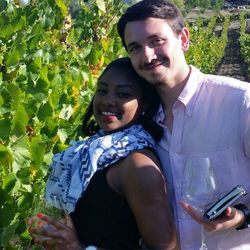







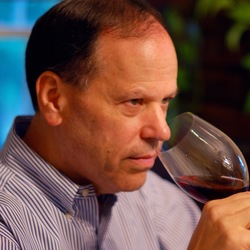




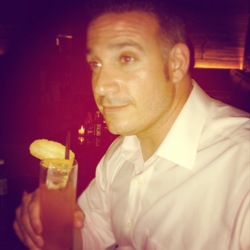








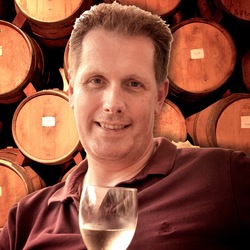


Bob McDonald
The final wine at the Peter Lehmann dinner at the Downs Club and the whole point of the dinner. Delectable: this new cuvée is called the Masterson and is a Barossa Valley Shiraz. Wine Pricing in Australia has become an arms race and this new Cuvée has set the benchmark at $1650 for a magnum - only available in magnum. This was sourced from a vineyard in the Moppa sub district of the Barossa owned by Glen Hammerling from vines planted in 1992 on original rootstocks, dry grown in deep sandy loam with ironstone over clay. The wine itself is an exercise in restraint. Matured in a large 2500 litre fourdre imparting minimal oak influence. You could happily drink this wine now or cellar for over 30 years. It is so well balanced. A brilliant wine but is it worth $1650? I think the pricing is too ambitious but the owner of Peter Lehmann, John Casella, the owner of export star, Yellow Tail, probably doesn’t care as he continues to make money from his budget line. 1458 magnums created and only 1000 released for purchase. — 6 years ago